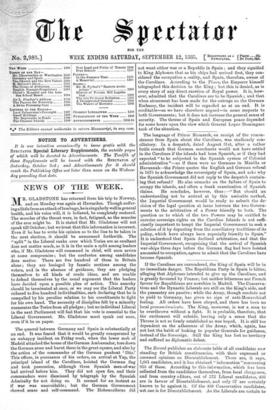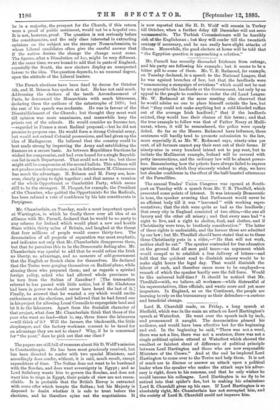The Record publishes an elaborate table of all candidates now
standing for British constituencies, with their expressed or assumed opinions on Disestablishment. There are, it says, 1,061 candidates, and it has obtained " information " concerning 955 of these. According to this information, which has been collected from the candidates themselves, from local clergy men, and from country editors, out of 572 Liberal candidates, 403 are in favour of Disestablishment, and only 37 are certainly known to be against it. Of the 489 Conservative candidates, not one is for Disestablishment. As the Liberals are certain to
be in a majority, the prospect for the Church, if this return were a proof of public sentiment, would net be a hopeful one. It is not, however, proof. The question is not seriously before the constituencies, and the only class interested in extracting opinions on the subject are the stronger Nonconformists, to whom Liberal candidates often give the careful answer that if the nation desires the change the change must come. The figures, after a Dissolution ad hoc, might be very different. At the same time, we are bound to add that in parts of England, especially the South, the new electors display an unexpected favour to the idea. The question depends, to an unusual degree, upon the attitude of the Liberal leaders.



































